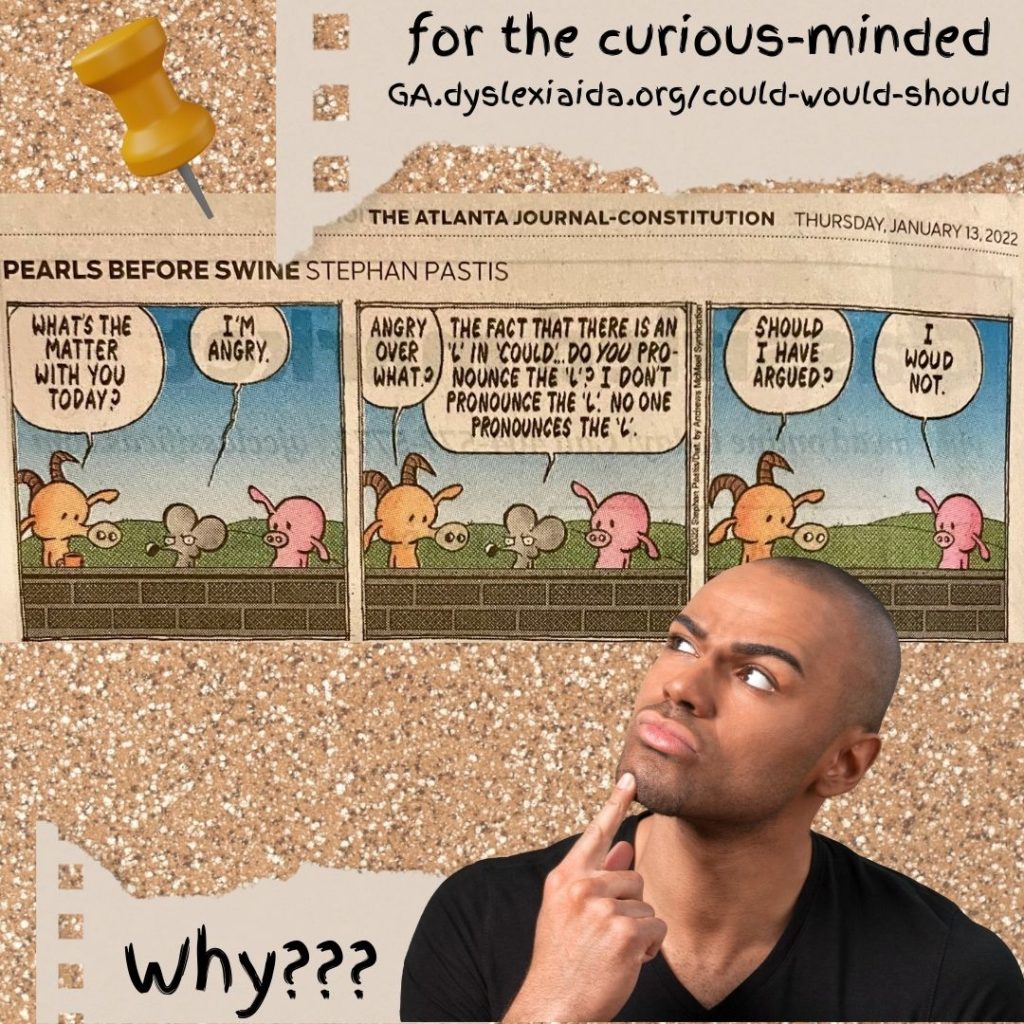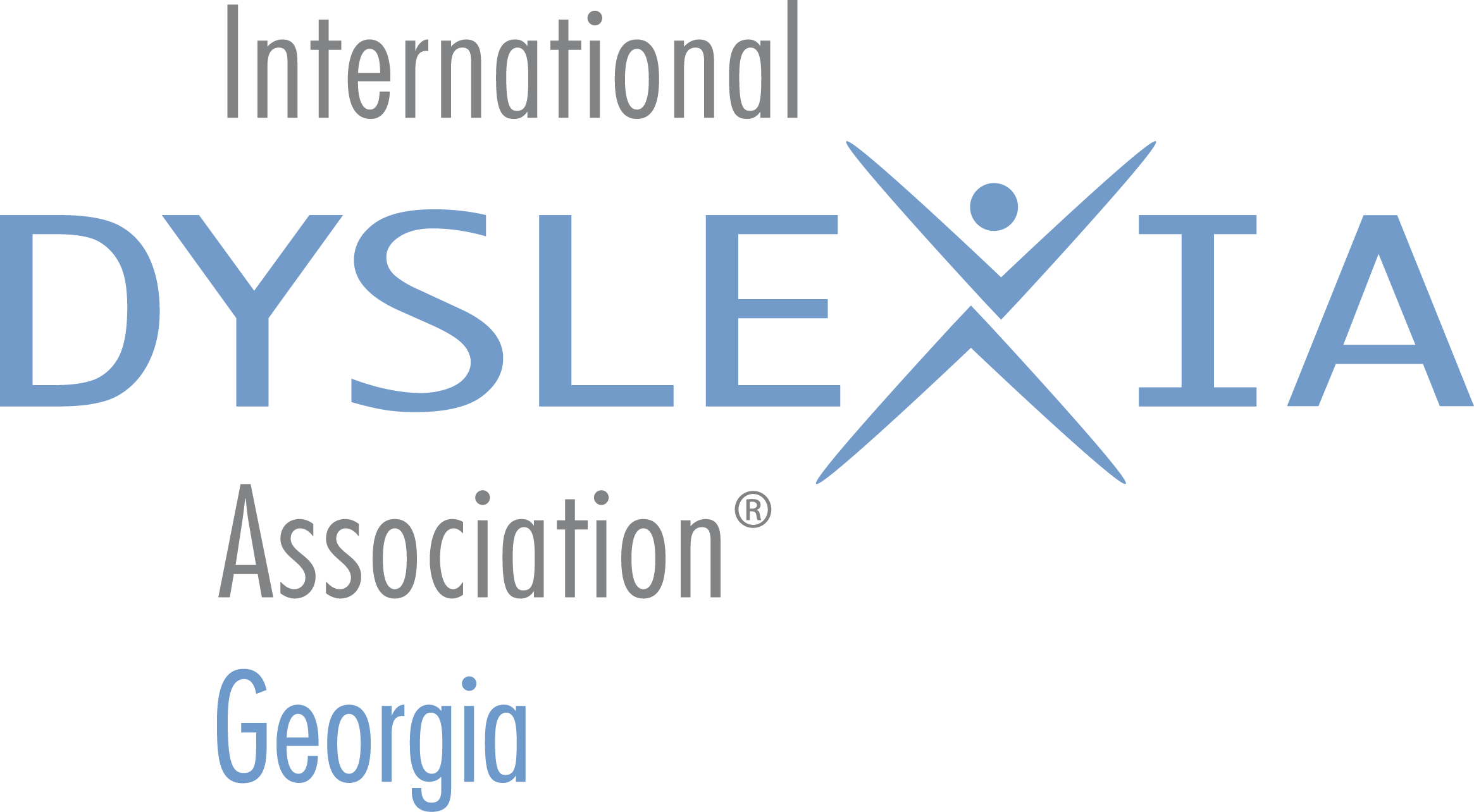 Did you laugh?
Did you laugh? Thanks for the chuckle, Stephan Pastis! (See Pearls Before Swine, Atlanta Journal-Constitution, Jan. 13, 2022)
There is no doubt the word conundrum posed in this comic strip prompted some readers to dig for more information. Many of those readers are teachers trained in Structured Literacy. Structured Literacy teachers know the language becomes far less mysterious the more teachers themselves delve into the origins of words.
THIS IS FOR YOU, the curious-minded educator:
“The existence of would and should, for example, brought about the spelling of could. Would and should were once pronounced with the ‘l’ sound, as they were the past-tense forms of will and shall. Could, however, was never pronounced with an ‘l’; it was the past tense of can. Could was coude or cuthe. Then the visual power of would and should attracted could to their side. At printing’s rise, the ‘l’ sound was already often absent from the pronunciation of would and should, so the ‘l’ was less a cue to pronunciation than to word type. Could is a modal verb, same as would and should. There was no explicit intention to make them look the same, but the frequency of their appearance nudged them toward ending up that way.” -Arika Okrent, Ph.D.
July 26, 2021
Still curious? Check out this video by Okrent and illustrator Sean O’Neill: “Shoulda Woulda Coulda. Where does that L come from?” found at https://www.youtube.com/watch?v=EYJ8ex39ykc
Arika Okrent is a linguist and author with a joint Ph.D. in linguistics and cognition and cognitive neuroscience from the University of Chicago. She is the author of In the Land of Invented Languages (2009) and Highly Irregular: Why Tough, Through, and Dough Don’t Rhyme – and Other Oddities of the English Language (2021). She lives in Chicago and covers language for Mental Floss.
GA.dyslexiaida.org/could-would-should

